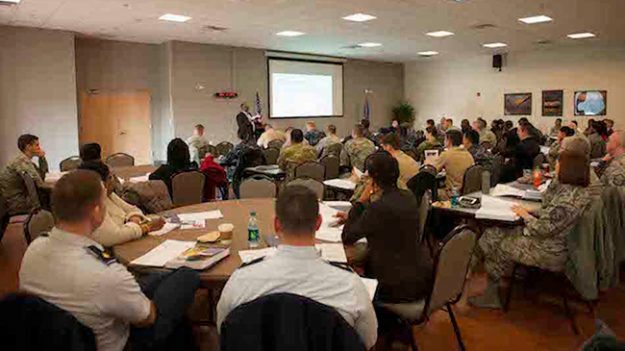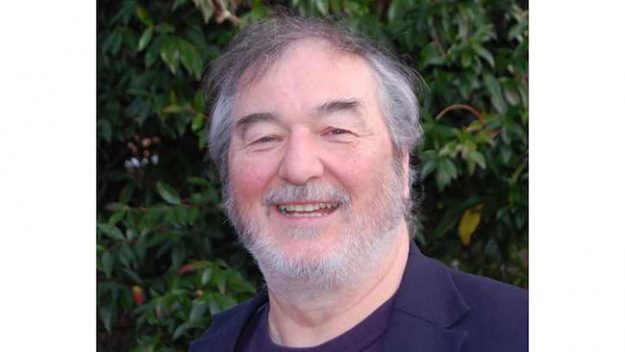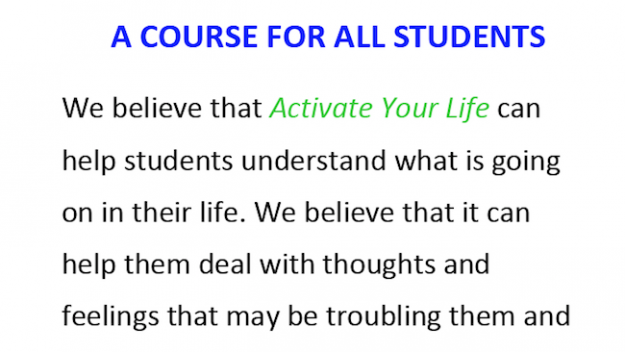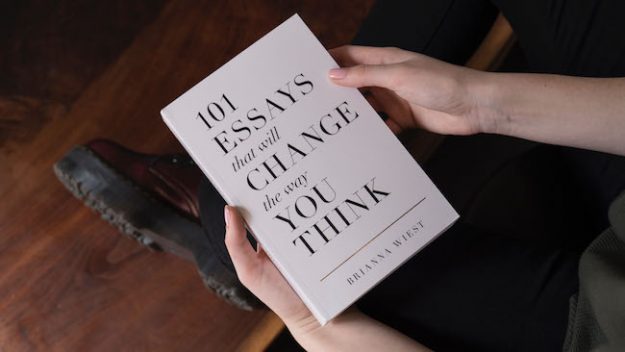Through self-help book prescriptions and four free sessions, Dr. Neil Frude seeks to help people ACTivate their Life.

Imagining your hundredth birthday party, defusing poisonous words through sound control, prescription of self-help books, specialised breathing, mindful eating – these are just a few of the activities through which Dr. Neil Frude seeks to help the world attain emotional acceptance of their problems.
“Many people weren’t benefitting from psychological therapy, because they weren’t getting it”, says Dr. Frude, on one of the first things he noticed when he joined the NHS 20 years ago. Determined to get help out to the population, he set about finding the way.
Today, Dr. Frude is about to begin another of his ACTivate Your Life workshops, leading a group of attendees to mindfulness and acceptance through psycho-education. Held in four free classes or “acts”, the workshops can be attended by absolutely anyone, and is designed to help people with mental illnesses such as anxiety and depression, and physical illnesses such as cancer or a stroke.
Dr. Frude, who has had a long career as a consultant clinical psychologist, teacher and academic, says “I realized that there are very few therapists. One-to-one therapy will only be able to through to only some people, and I am very interested in ways of getting psychological therapy to the hundreds and thousands of people that need it. The figures show that within adults and children, maybe a third or a fourth of the population has or will have a mental illness, and psycho-education can be a vital assistance to help with that.”

Started in 2012, the workshops are lecture-based. They are based on Acceptance and Commitment Therapy, which was started in America by Stephen Hayes. It is designed to help people realise that thoughts are only thoughts. “It helps people recognize that the problem they’re going through is only something that you’re feeling at the moment, and you can still carry on with your behavior and actions to some extent. It’s a mindfulness-based therapy, which helps you look at your own thoughts and feelings, and how you can change them,” he says.
ACTivate Your Life uses psycho-education to reach more people – whole groups (with no size limit) can be ‘treated’ together. The presenters of the workshops do not need to be therapists, psychologists, counsellors or psychiatrists – they can be volunteers, students, as long as they have attended a 2-day training on how to deliver the course. Although designed originally for community use through the NHS and administered all around Wales, Dr. Frude has developed a number of special versions of the workshops, each tailored for a specific problem to assist with.
“I have a version for people who’ve suffered a stroke, for prisoners, for university students, and one for people afflicted with cancer. Lots and lots of people can deliver the course, because it’s so heavily based on Powerpoint. I train them to deliver the lectures in a lively way, so it will come alive,” he says.

Today, it has been delivered to over 10000 people, many of whom have verified through the feedback mechanism that they have significantly lower anxiety and depression, and higher scores in emotional wellbeing. The course seeks to monitor the participants’ emotional and mental state by handing them a questionnaire before the start of the course, one after each session, and a follow-up, either through a phone call or an email, after the course.
The course has various activities to help participants increase their emotional wellbeing, some of which are held in class, and others which can be done by the participants at home, as well. At the end of each session, the participant is given a handout with more resources to follow. The standard course is held for adult mental health, and is peppered with related examples. For the course for university students, the material includes how to deal with social media and the effects associated with it. For the cancer and stroke courses, the material deals with how to empathise with, understand and accept the illness.
“It’s a psychological course, so with physical illnesses such as cancer, it’s not curing it, but it’s helping people live emotionally with it. Although some of the techniques that we use, such as the mindfulness techniques, can help people with pain – it’s not a therapy that would help people regain the use of their limbs. It’s about helping people with the consequences of physical illness”, says Dr. Frude.

Aside from the workshops, Dr. Frude has started another program with the NHS as well. Here, self-help books are prescribed by doctors to their patients. “Doctors can select prescribe self-help books of high quality to help patients. There are a lot of them, and not all of them are good. The very good ones are very helpful,” he says.
Public libraries across Wales stock the self-help books, and upon receiving a prescription from his doctor, the patient can go to the library and check out and borrow the books, similar to buying medicine in a pharmacy.
Although both of Dr. Frude’s programs are held largely across Wales today, some of his workshops have spread to cities like Bristol and Exeter as well. Dr. Frude’s hope is that one day, the workshops reach all across England. “I can see it happening – classes as big as 150 people, all in a room, learning and healing together and mutually benefitting,” assures Dr. Frude with a grin.
